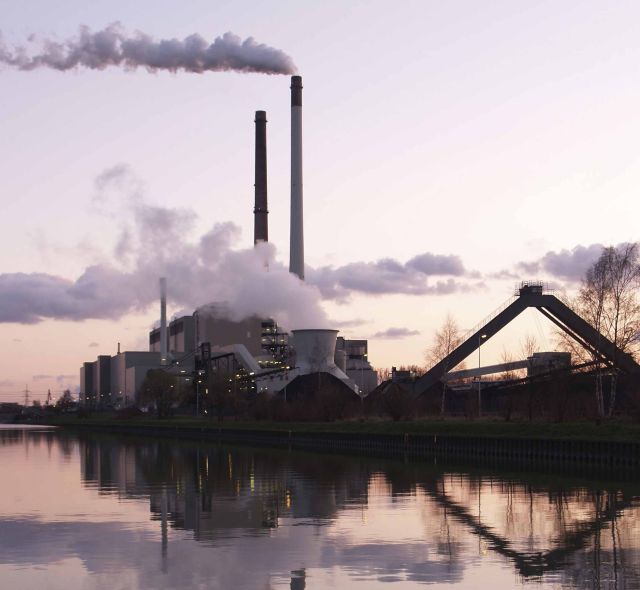
First there was climate denial. But the mocking laughter of the informed public – along with the indignation of the scientists – finally reached the energy-company boardrooms.
So now instead we get the non sequitur. That’s Latin for “it doesn’t follow”. Rather than lying outright, the fossil-fuel chiefs make nakedly contradictory statements and count on us not to notice.
Take this example, from the March 5 Business Spectator: “BHP Billiton boss Andrew Mackenzie believes over 70 per cent of the world’s energy will still come from fossil fuels by 2030 despite noting the impact of such energy sources on the world’s climate.
“ʻWarming of the climate is real, human activity is the dominant cause of this warming and physical impacts are unavoidable,’ [Mackenzie] said at a conference in Houston.”
We can all relax then. BHP Billiton’s CEO acknowledges greenhouse gases are warming the climate, so he must be trustworthy. As for the fact that the corporation he runs is powering ahead with extracting and selling coal, the climate be damned – well, did you read that far?
BHP Billiton owns major coal mines in Australia, South Africa, Colombia and the US. Its 2012 annual report says the company is “One of the world’s largest producers and marketers of export energy coal.”
Not that the profits from these mines are behind the company’s determination to keep digging and shipping coal. BHP Billiton’s motives are much more pure. Mackenzie again: "The world will continue to rely on fossil fuels over the long-term because their continued supply is vital to the development that will deliver huge reductions in abject poverty and improvements to all our living standards.”
The Australian on March 5 reported his saying: “If you say to … a lot of countries in Asia and I would add Africa, ‘You have to reject fossil fuels and you have to simply survive or even reject coal, and you have to survive on just gas’, then I can tell you now, because of the high cost of those fuels, that those countries will almost certainly be condemned to a much longer phase before they can lift their citizens out of abject poverty. And I’m a great believer that poverty of that level ultimately is quite a serious polluter.”
The world’s poor might respond that since Mackenzie is an advocate for climate science, he should read some of its predictions. A good place for him to start would be the new book Four Degrees of Global Warming: Australia in a Hot World, edited by Peter Christoff.
To bring the consequences of climate change alive for readers, Christoff’s text matches the climate futures of various Australian cities to other localities that now have those temperatures.
In a four-degree world, Sydney will be like today’s Rockhampton, Brisbane rather like Cairns. For Darwin there is simply no present-day analogue. No place on today’s Earth has combinations of temperature and humidity like those that await the Northern Territory capital.
Would Mackenzie’s prediction, in which fossil fuels provide 70% of global energy in 2030, yield a four-degree world later in the century? Scientists calculate that to keep average warming to about 4°C, world energy and process emissions need to peak by 2020, then keep declining at a (highly demanding) rate of 3.5% a year.
Carbon pollution is cumulative, and we humans are on a tight “budget” for the total we can vent to the atmosphere for particular temperature rises. Early reductions are crucial. If fossil fuels are still providing 70% of global energy in 2030, the budget for four degrees will have been well and truly blown. The temperature rise later in the century will be some markedly higher figure.
Meanwhile, the modelling here does not take account of the carbon likely to reach the atmosphere from sources such as forests, soils, bogs and permafrost once natural “tipping points” have been crossed. Embodied in these “tipping points” is the most alarming prospect of all: that reckless emissions during the next few decades will raise temperatures later this century to the point where the rises become self-accelerating – where atmospheric carbon keeps increasing whether humans add to it or not.
Human beings, like other organisms, have only a certain ability to tolerate heat. With global-mean warming of 6°C, a recent study found, safe productive work in the open would become impossible in many tropical and subtropical areas during the warmest months.
With warming of about 7°C, another study concluded, there would be regions where even people resting in the shade and under fans would die of heatstroke. With warming of 11-12°C, these regions would include the areas currently inhabited by a majority of the world’s population.
BHP Billiton’s gift to the world’s poorest, in short, could quite likely be to make their countries uninhabitable.
Where does Mackenzie imagine his grandchildren will spend their lives? In villas in balmy Greenland? As descendants of a wealthy corporate chief, they might just be able to.
But most of the world’s population, and above all its poor, won’t get this chance. They’ll be prey to hunger and heatstroke – or already dead.